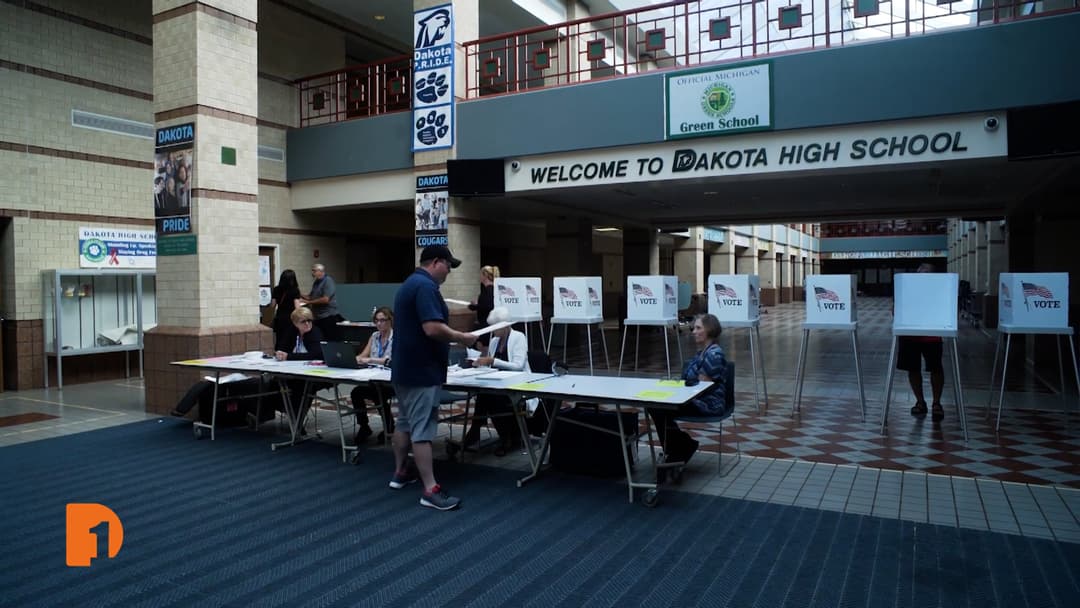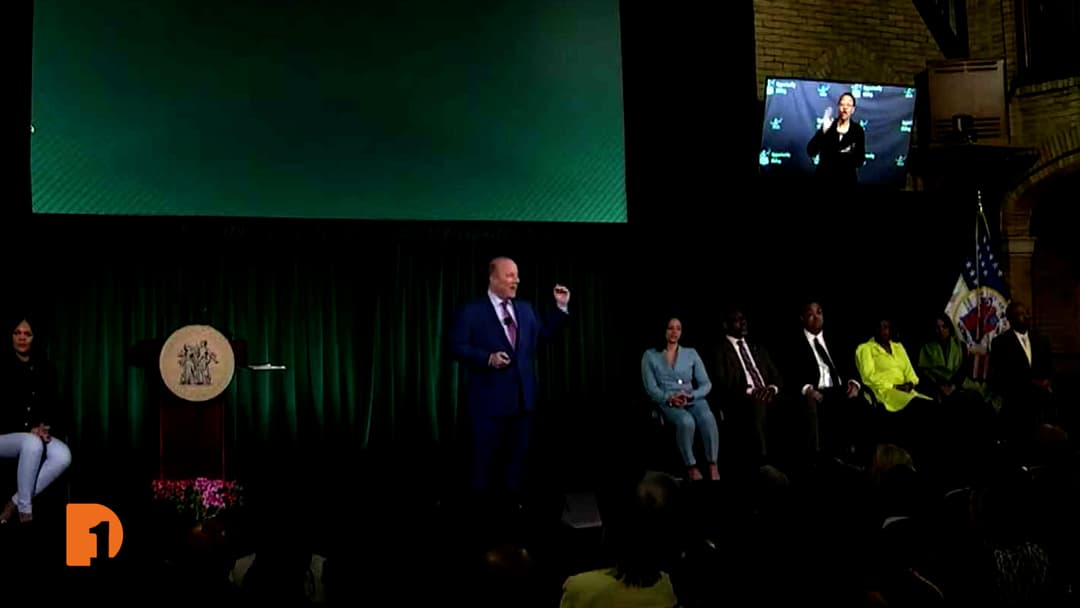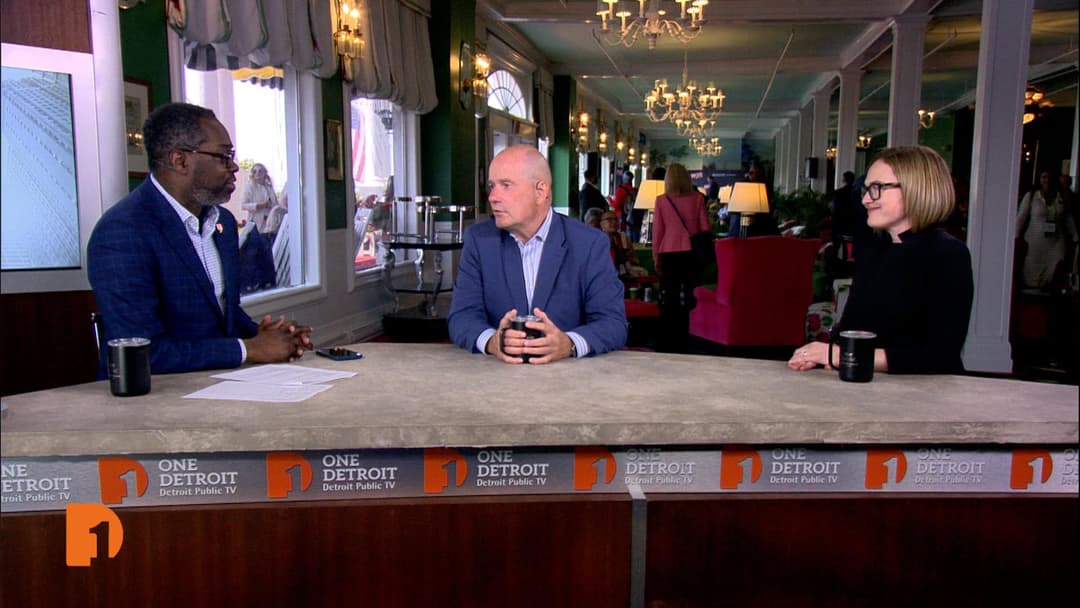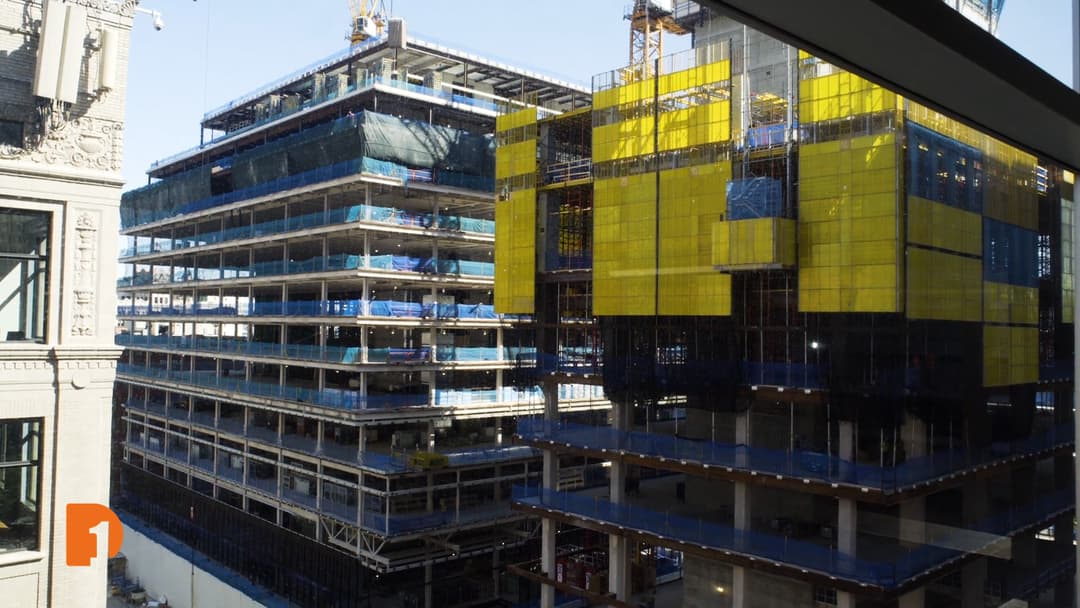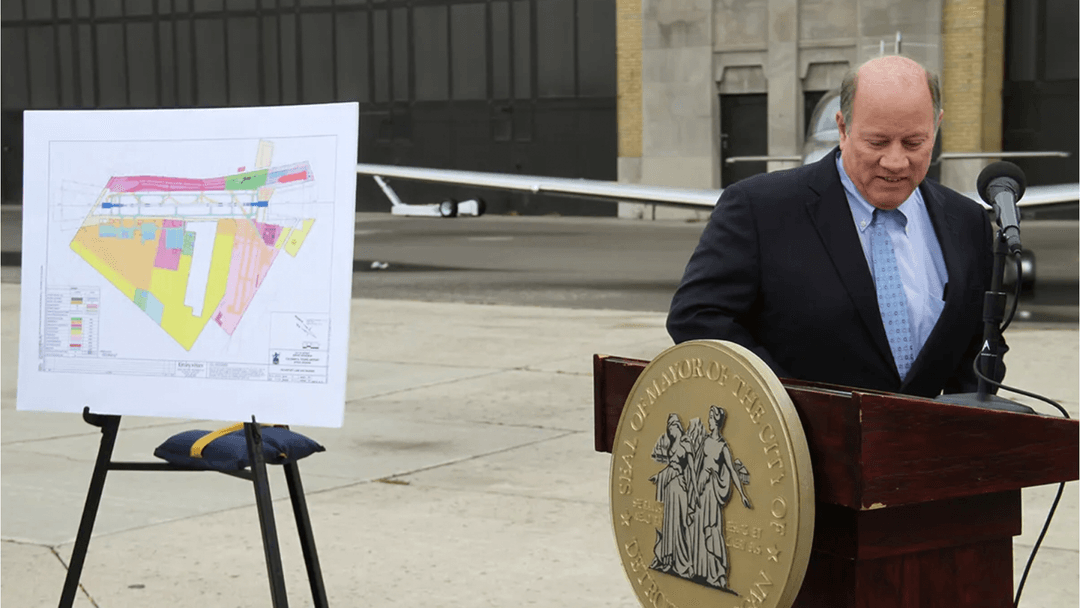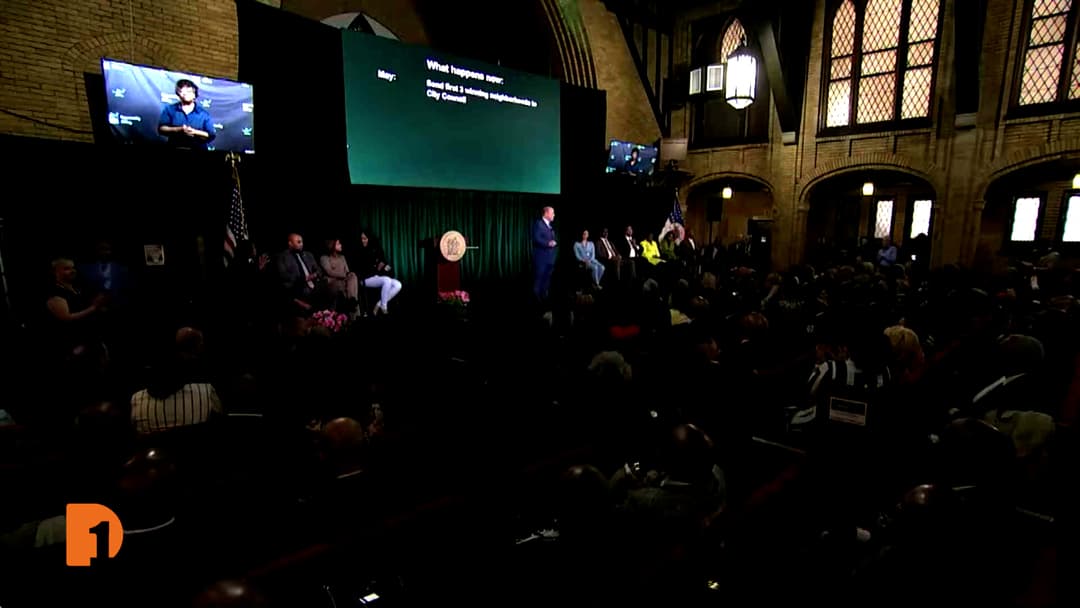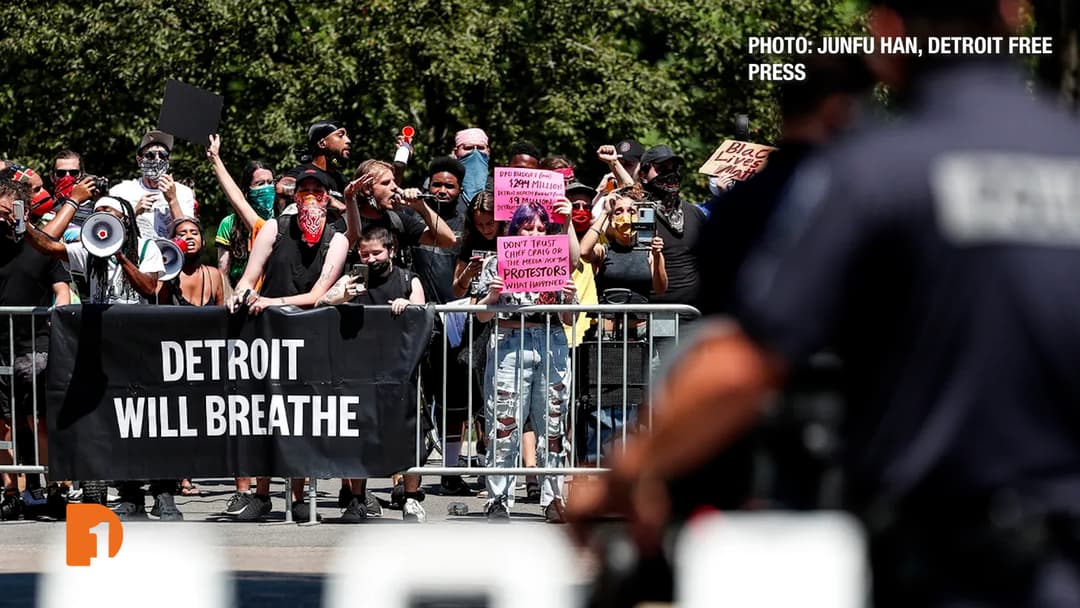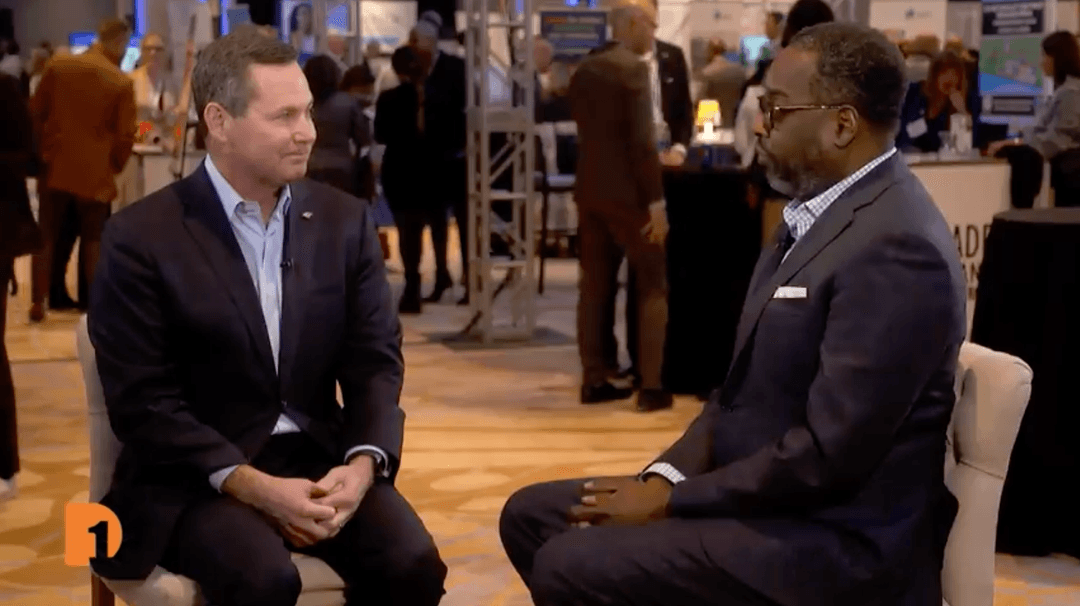Detroit Mayor Mike Duggan proposes new property tax plan, challenges city’s population loss
Jun 9, 2023
Reducing property taxes and increasing the city’s population are two issues that recently made headlines in Detroit after the Detroit Regional Chamber’s 2023 Mackinac Policy Conference. Mayor Mike Duggan outlined his proposed changes to the city’s property tax system at the annual conference. And, he’s also challenging the latest federal census data on the city’s population decline.
Duggan’s proposed tax reform, which would need approval by the state legislative bodies to be enacted, would give the City of Detroit and other Michigan municipalities the opportunity to vote on a new way to implement property taxes to benefit residents, spur development, and cut down on land speculation. Specifically, Duggan’s new Land Value Tax plan would cut building taxes by 30% and triple land taxes. It would be the first change to Detroit’s property tax code in 50 years.
RELATED: Detroit Mayor Mike Duggan announces Land Value Tax plan to erase blight in the city
BridgeDetroit reporter Malachi Barrett covered Duggan’s keynote address at the conference, where he announced these plans. He joins One Detroit producer Will Glover to outline Duggan’s proposed property tax changes. Plus, they talk about the factors that are influencing many Detroiters to move out of the city and how the Detroit region will play a leading role in the state’s revitalization efforts.
Full Transcript:
Will Glover, Host, One Detroit: Mayor Duggan has been calling for taxes to be changed in Detroit. So can you explain what the issue is and what the mayor is calling for?
Malachi Barrett, Reporter, BridgeDetroit: I don’t think this is news to anybody living in the city of Detroit, that the tax system is unfair and perhaps even pretty broken depending on who you talk to. Right now, the tax system is set up in a way that incentivizes blight and incentivizes people to hold on to property until it becomes, you know, more lucrative for them to either sell it to a big developer or, you know, it’s kind of like a cheap lottery ticket. The mayor said that they hang on to this land until it’s in a position where the surrounding area is ready to be redeveloped in any kind of cash-in.
And our tax system really penalizes homeowners who face some of the highest tax rates in the area. And so, you know, it’s really been holding back growth in a lot of neighborhoods. And what the mayor would rather do is kind of reverse the situation by creating a new tax rate for homeowners, for structures would be taxed differently than just land itself. So, the taxes would go up on land and it would go down on structures. And, you know, the idea is that would create a giant tax savings for 97%, you know, the vast majority of people in the city. It would be automatic.
You wouldn’t have to sign up for it. It would be recurring, you know, automatically as well. It’s not like you would have to apply year to year. So, you know, you get tax savings there and then the people who are sitting on parking lots or grassy lots in your neighborhood, they would have to pay more. And maybe that would kind of promote doing something with that developing land and selling it to somebody who would develop it. And maybe kind of kick-start some of these areas that have been held back by land speculation.
Will Glover: Well, he’s trying to flip the tax code so that it incentivizes– it brings the taxes down for people who have structures on their property, like homeowners, without having to go through anything. They don’t have to sign up for any programs because it’s a policy change. But at the same time, he’s trying to spur economic development by putting a higher tax rate on vacant lots people use for like maybe dumping or like you said, parking lots or just properties that are, you know, kind of being held on to and letting go into disrepair. Those are the properties that are going to be taxed at a higher rate, correct?
Malachi Barrett: Yeah, definitely. So, I think this really kind of targets the downtown parking lots that a lot of Detroiters have gripes about. These kinds of pretty vast swaths of concrete that aren’t really seeing a lot done with them. It also would affect tow yards, and scrap yards, and some of these kind of dumping areas that you referenced. The mayor really pointed this out during a speech, that we’ve got 450 plus scrap yards in the city of Detroit. And that’s not because, you know, we have the higher rate of scrap that needs places to be. I mean, a lot of it is because it’s so much cheaper for those business owners to have that land in the city compared to out in the suburbs.
Will Glover: What challenges is Detroit facing right now when it comes to the population? Because you wrote that they’re there still.
Malachi Barrett: They’re there in a major way. You know depending on if you believe the census where we’re either shrinking or shrinking pretty fast. The mayors kind of challenged some of that federal data that shows the city continue to drop residents in the last year. Lost around just under 8,000 people from 21 to 2022. I believe there was some polling that was done of Detroit residents kind of first of its kind survey done by Gallup. And it found that, you know, this probably won’t be surprising either, t’s crime and its education are the top two reasons that people are leaving the city. And, you know, we hear this all the time that people don’t feel safe in their neighborhoods and they also feel like younger families in particular don’t have places to send their kids to school, that they will set them up for success.
There’s a perception and probably rightfully so, that, you know, you have to send your kids to nonpublic school. If you live in the city for them to get a good education. And, you know, younger families that are making decisions long term, that’s something that pushes them out. Job opportunities and wages is another reason that ranks really high. And then right behind that is cost of living. Right?
So that connects to all of the issues of housing that you talk to people about all the time. You know how expensive it is to buy a house, to renovate a house, even to rent in the city of Detroit. You know, the median income in the city is still around $35,000 or something like that. You know, it’s not really good enough to afford a lot of the new rental units that are being built. And nobody’s really building like single-family houses. So where do you actually live? That stuff all ties together.
Will Glover: From your reporting. Where is your optimism? Is it high? Is it medium? Is low?
Malachi Barrett: Yeah. I mean, I think in one sense, it’s encouraging to see that the things that we’re talking about, you know, policymakers are talking about as well, like there’s a pretty clear-eyed view, I think, of what’s holding us back and what needs to be done. I think where I start to maybe be less optimistic personally, is what’s going to be done about that. I mean, the governor put together a commission to kind of study some of these population trends statewide and come up with a set of recommendations.
And I think, you know, depending on your opinion, that’s either a great step forward to start to address these things or it’s another kind of like reinventing the wheel because we already kind of know what a lot of these issues are, right? We are definitely going to be a major site of investments moving forward. Like Detroit in the metro region is still really vital to the state’s economy. It’s going to be the source of this kind of population growth strategy that Governor Whitmer is working on. So I don’t know. I guess I’m hopeful. But, you know, we’re obviously going to be keeping a really close eye on this. And, you know, if folks aren’t as hopeful, I certainly understand why I.
Stay Connected:
Subscribe to One Detroit’s YouTube Channel & Don’t miss One Detroit Mondays and Thursdays at 7:30 p.m. on Detroit PBS, WTVS-Channel 56.
Catch the daily conversations on our website, Facebook, Twitter @DPTVOneDetroit, and Instagram @One.Detroit
View Past Episodes >
Watch One Detroit every Monday and Thursday at 7:30 p.m. ET on Detroit Public TV on Detroit Public TV, WTVS-Channel 56.
Stay Connected
Subscribe to One Detroit’s YouTube Channel and don’t miss One Detroit on Thursdays at 7:30 p.m. and Sundays at 9 a.m. on Detroit PBS, WTVS-Channel 56.
Catch the daily conversations on our website, Facebook, Twitter @OneDetroit_PBS, and Instagram @One.Detroit
Related Posts
Leave a Reply
Your email address will not be published. Required fields are marked*




